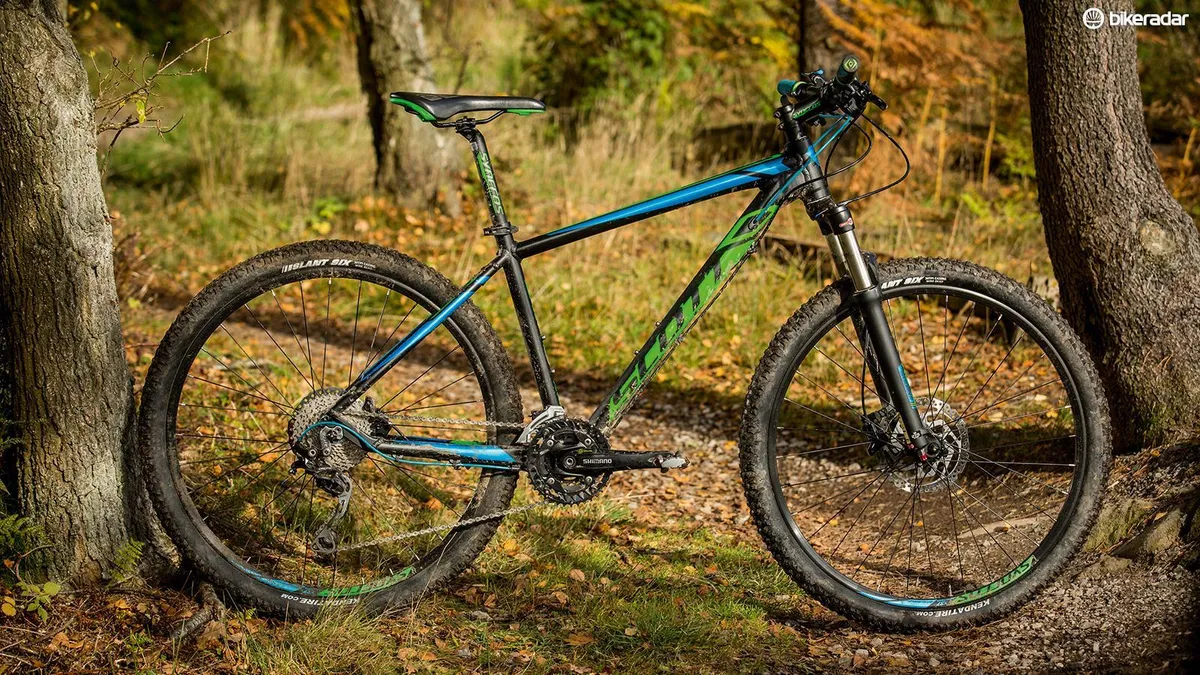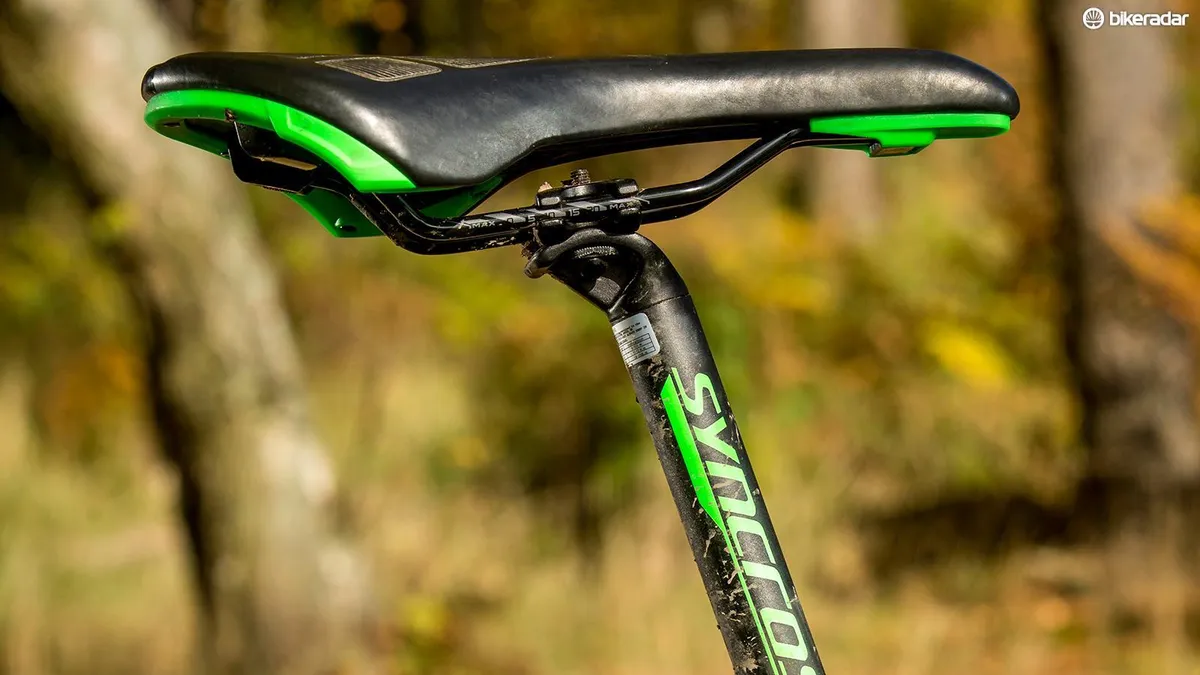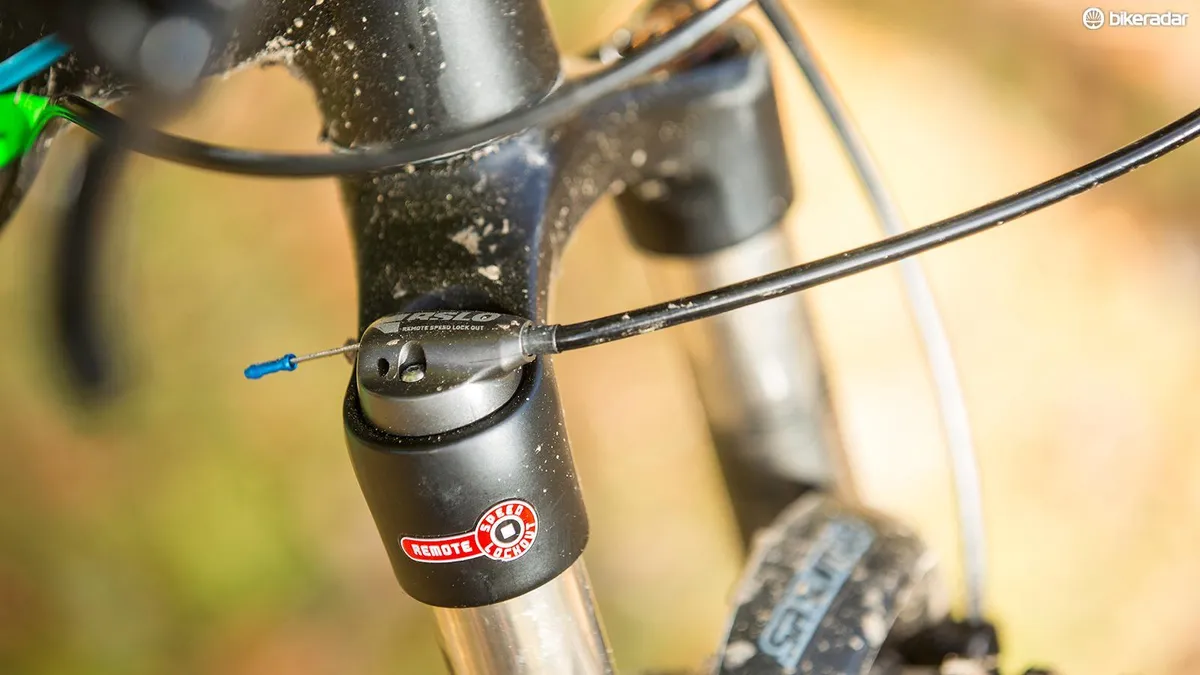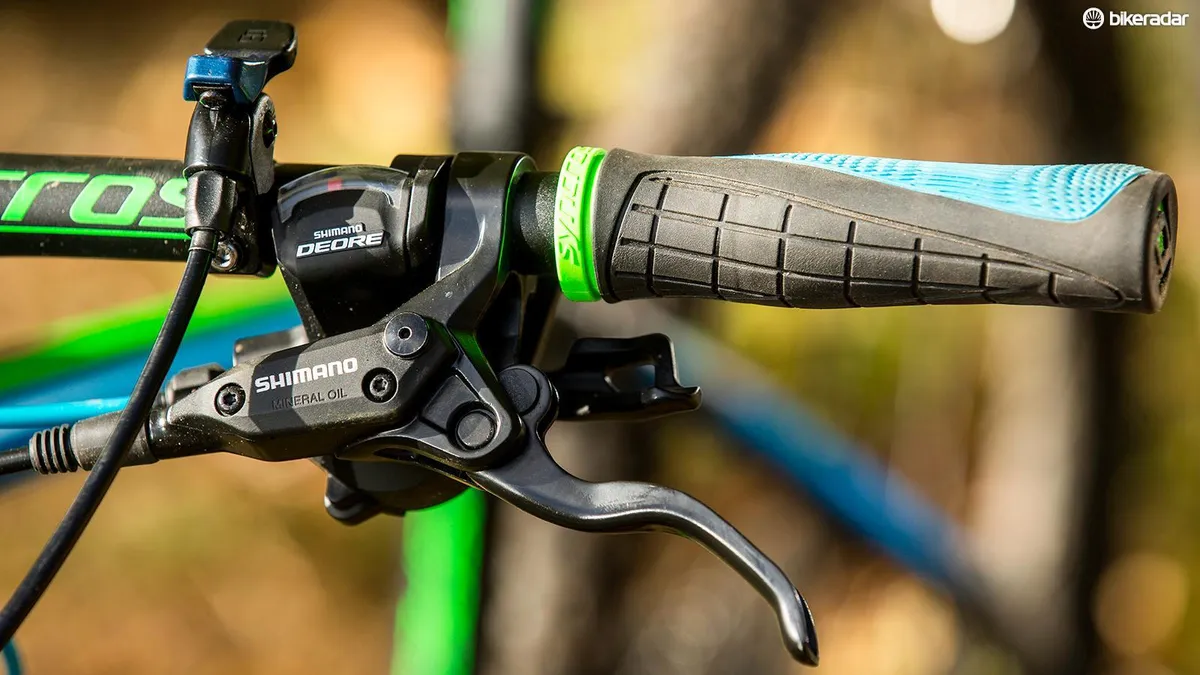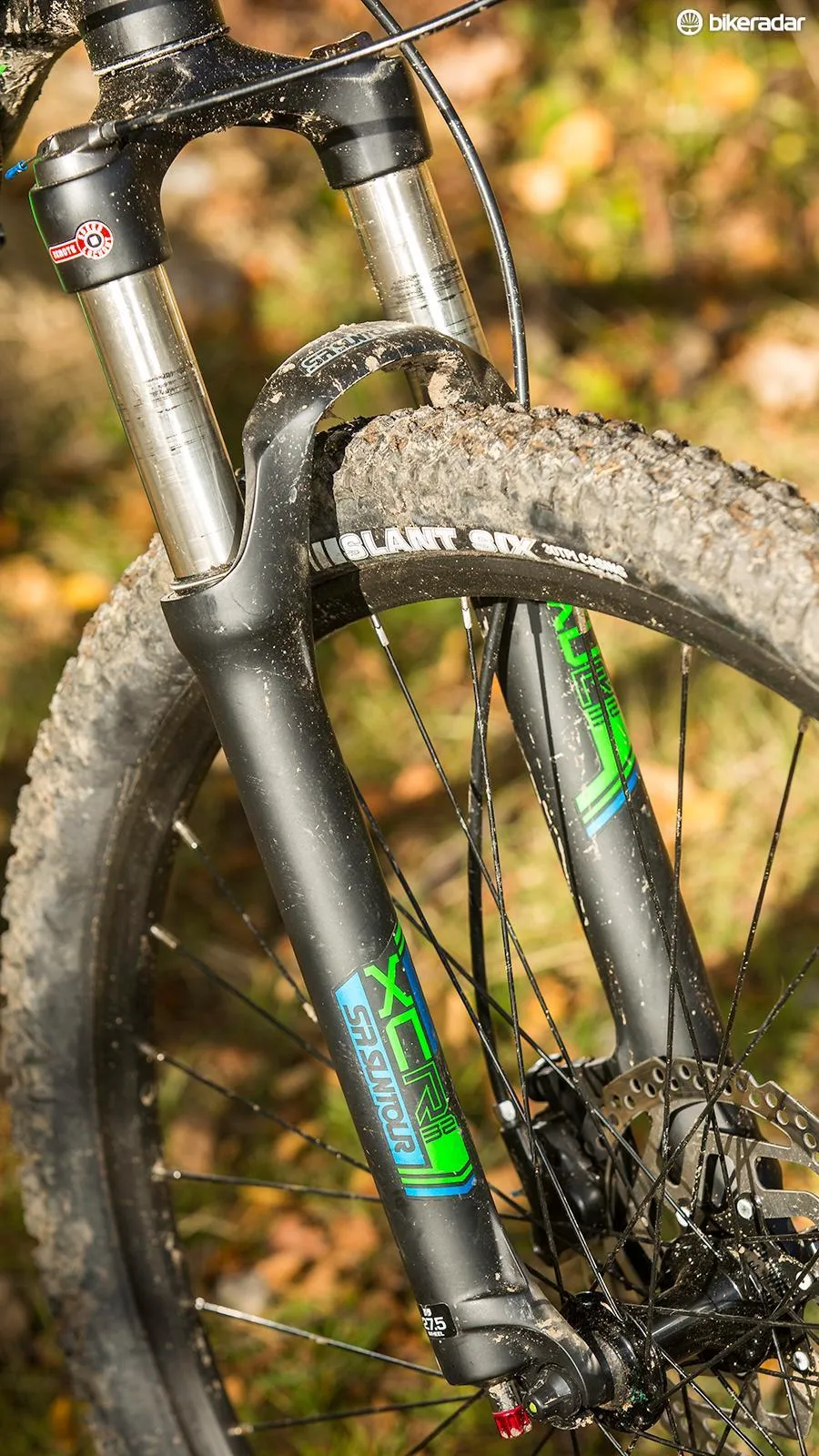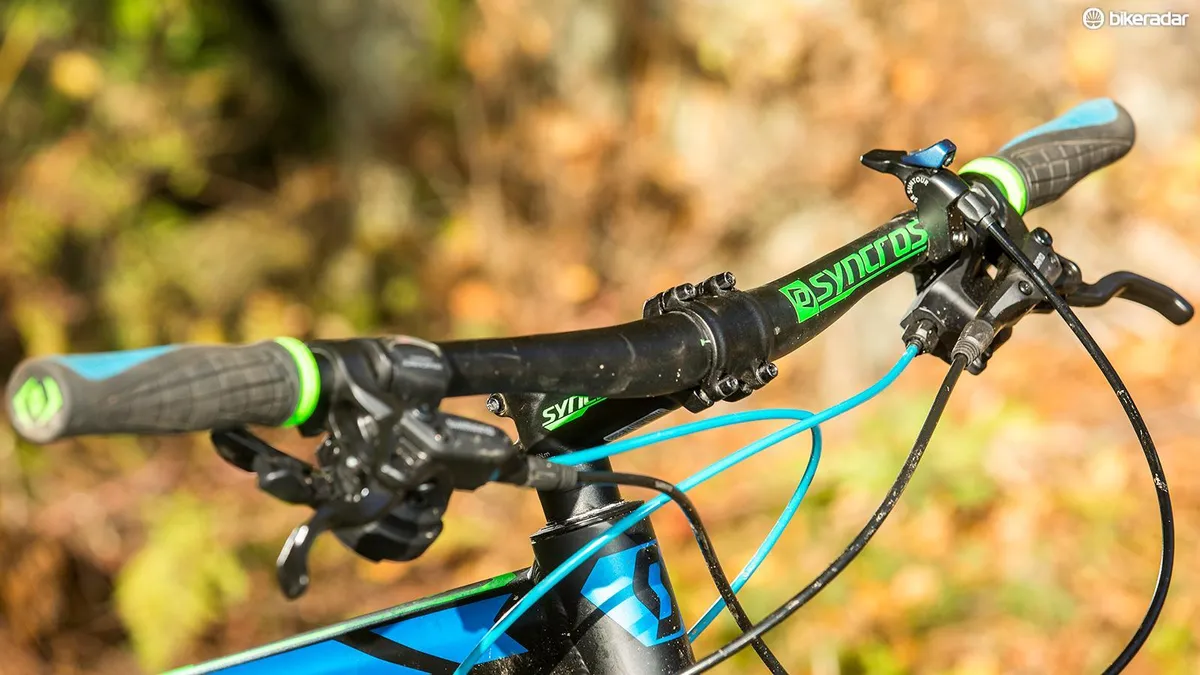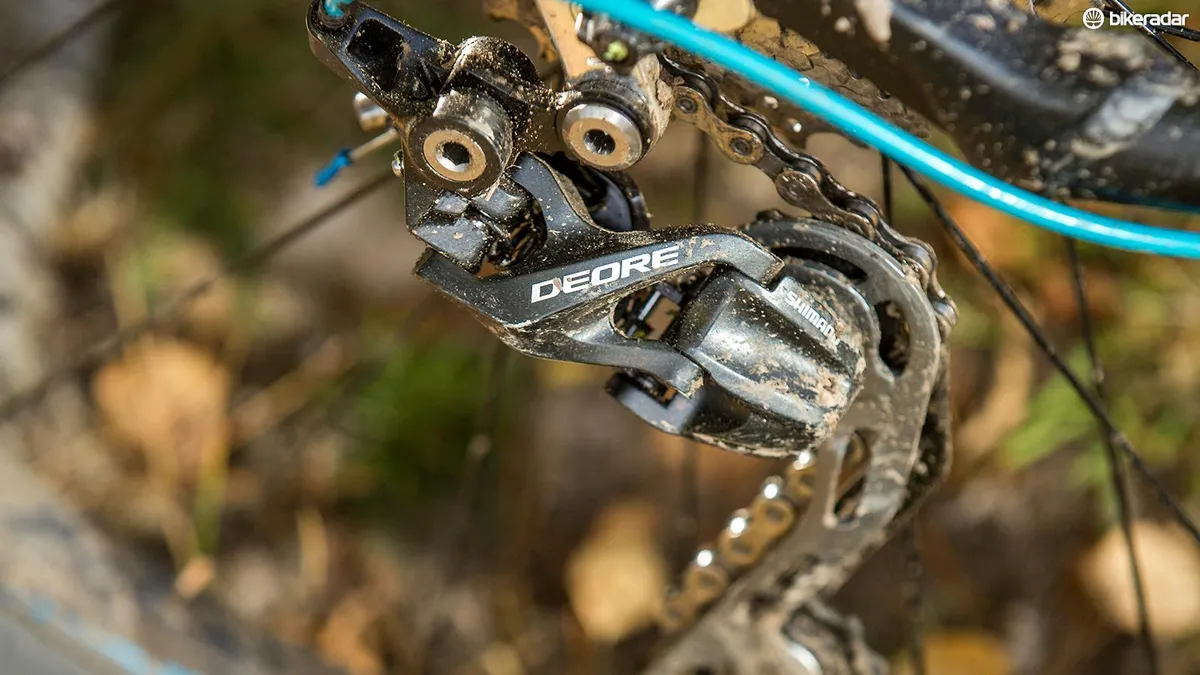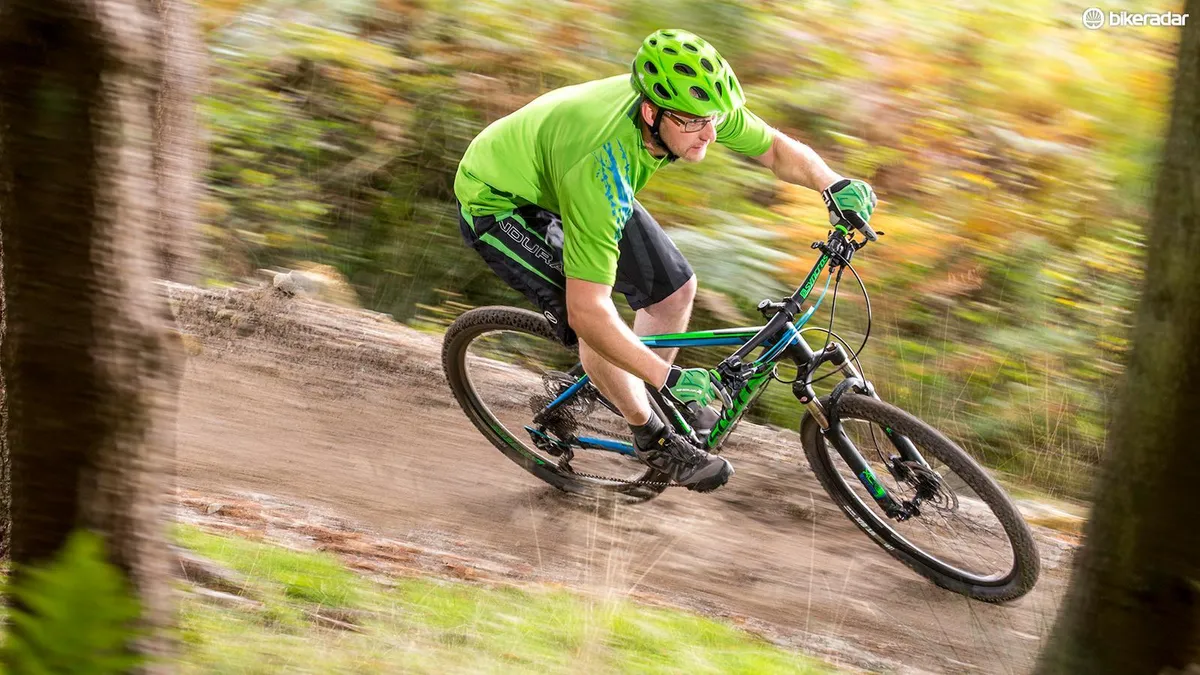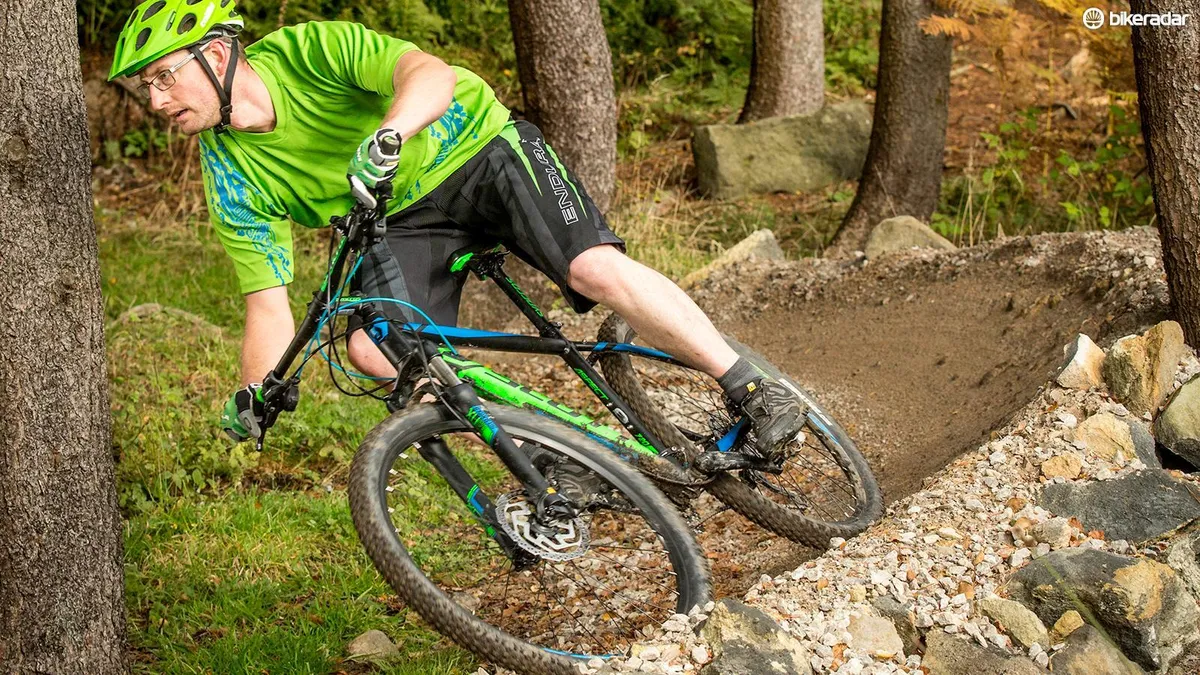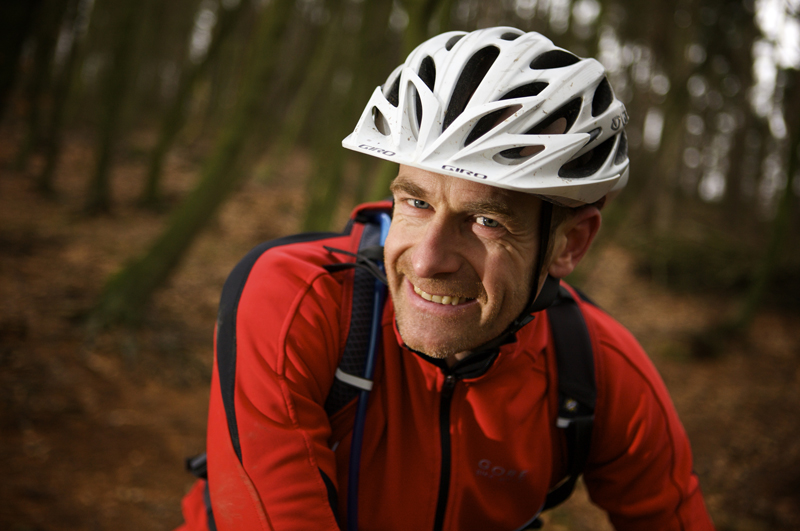In some ways the Aspect is a reminder of an earlier, simpler age of do-it-all mountain bikes. While some manufacturers’ offerings are overtly pitched as budget race bikes or slackened-out trail bikes, the Scott keeps everything in the middle of the road.
Straightforward style with a few neat touches
We don’t expect massively innovative design and construction at this price, and the Scott’s frame is a straightforward mechanically-shaped alloy number, though it packs in a neat mix of up-to-date and proven practical touches.
The short 1-1/8in head tube backs onto a sloped top tube and down tube with changing profiles to manage power and steering stresses. We’d have liked to have seen a head tube ready for a tapered steerer, just to ease future fork upgrades.
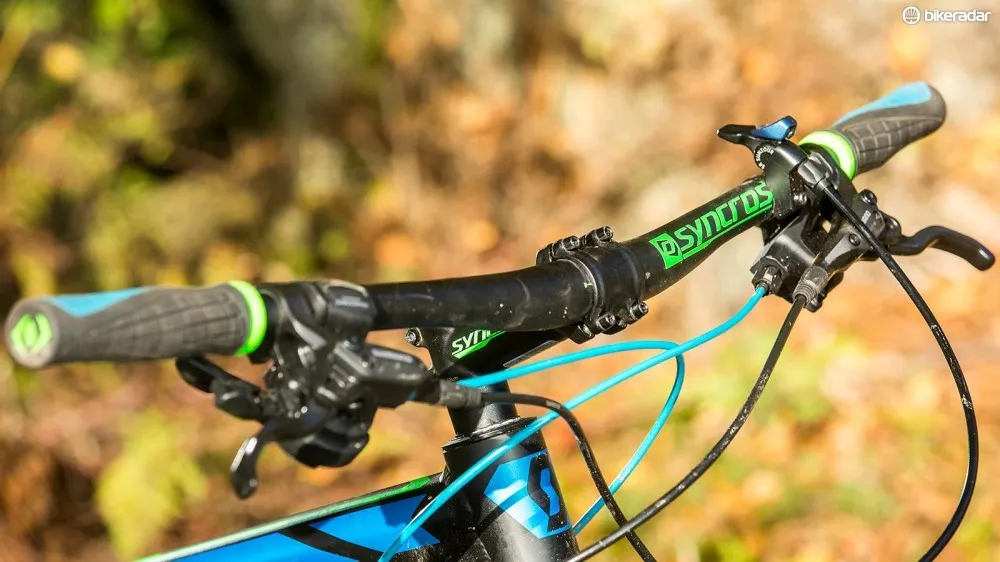
The 720mm bar gives welcome power assistance when the trail starts to get techy and treacherous
Gear cables are routed inside the down tube, while the rear brake hose runs under the frame to the caliper mount on the long, angled end of the chainstay. Weirdly, despite the up-to-date positioning it’s an older IS rather than post-style mount.
There are rack and mudguard mounts for commuting or exploring. The skinny 27.2mm seatpost makes dropper upgrading awkward but gets a quick-release lever for easy adjustment. The Scott comes in a full range of five sizes from XS to XL.
The most obvious aspect of the kit is the extensive colour coding, with the grips, saddle, fork, rims, bar, seatpost, stem and even cables all matching the blue and green frame.
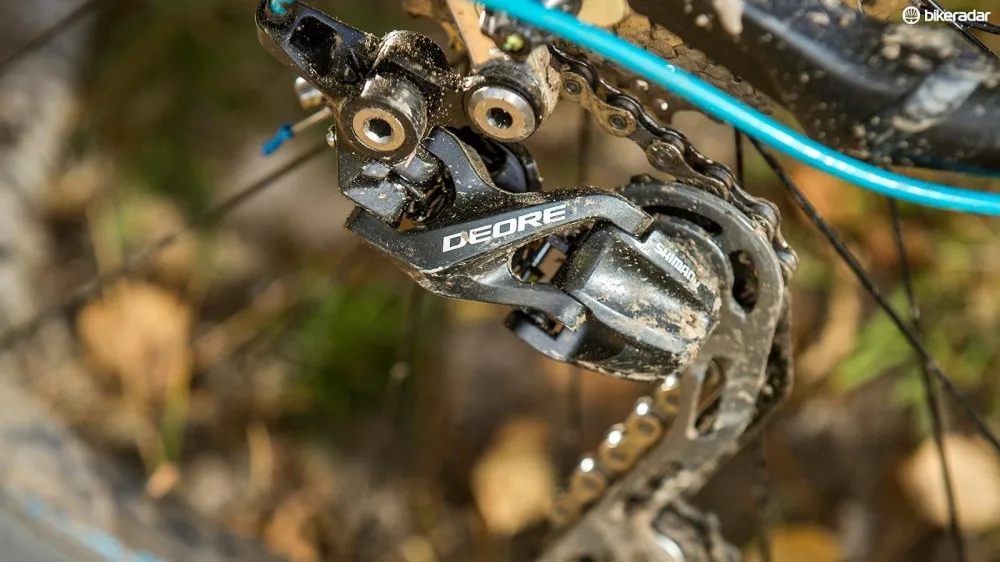
Shimano Deore stop and go kit is utterly dependable
You also get a 32mm legged Suntour XCR fork with remote lockout and adjustable rebound damping.
The Shimano Deore stop and go equipment is a definite step up from Altus and Alivio, though the skinny, separate-axle M523 crankset and the M396 brakes are cheaper non-series parts. An outboard-bearing crankset would be a bonus, but this is par for the course.
While they roll well and grip better than expected, the basic 30tpi Kenda tyres contribute to a heavy wheel package hefty overall weight too: 14.08kg (31.04lb). Not what you’d expect from a brand with a reputation firmly rooted in racing.
Solid but unspectacular steed
The cockpit is the first thing you notice for two reasons. Nobody in our test team liked the awful bulged-centre grips and some testers found them really bruising and distracting when they hit harder trails. The wider bar was appreciated by everyone though – it adds noticeable accuracy and authority to the Scott’s steering, which is carried right though the 32mm fork legs to the trail.
Despite being 10mm longer than listed, the 90mm stem also reacts fast enough to snatch back slipping traction if you push the semi-slick Kenda tyres a bit too hard or they decide to skate off randomly on roots or rocks.
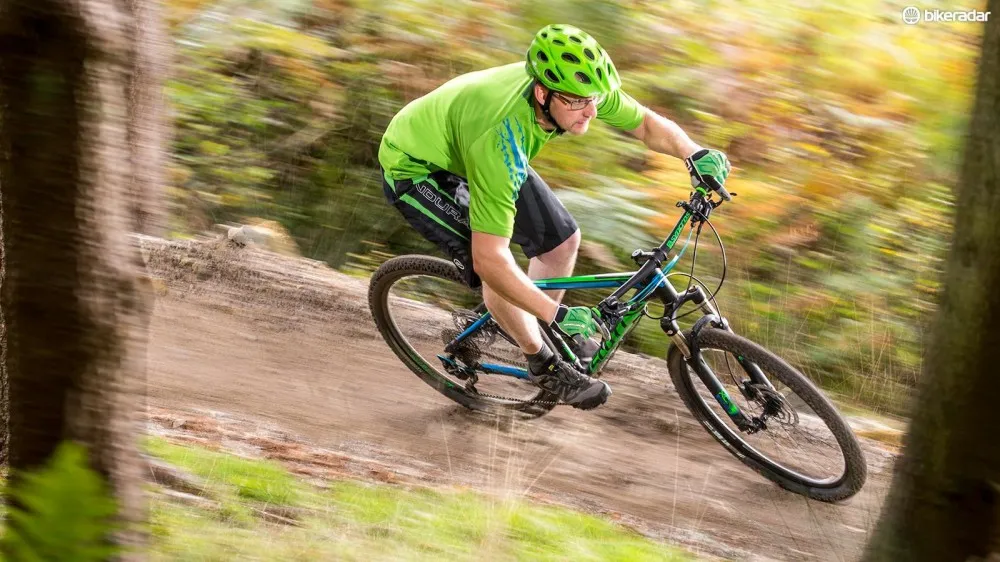
The Aspect holds its speed nicely on flatter trails
The shortish stem and chainstays put the handling centre exactly where you’d expect, rather than making the bike feel like it’s folding in half underneath you. The chunky-chainstayed frame feels equally responsive and direct too. That means that, despite the overall weight and lardy wheelset, plus skinny-spindled cranks to propel it, the Aspect always felt punchy when we put the power down.
The fast-rolling Slant Six tyres help with speed sustain on smooth surfaces and if you’re sprinting up a fireroad you can lock the fork rigid remotely. Having decent brakes always helps too, and while the cheap Shimanos on the Scott aren’t amazing they’re predictably controlled and easy to look after over time. The 180mm front rotor adds a bit more braking bite too and we always had more power in the brakes than we did adhesion in the tyres.
The direct communication, well balanced, reasonably precise handling and adequately communicative brakes do at least make it easy to tweak the bike back under control and keep it where you want on the trail when the treads co-operate.
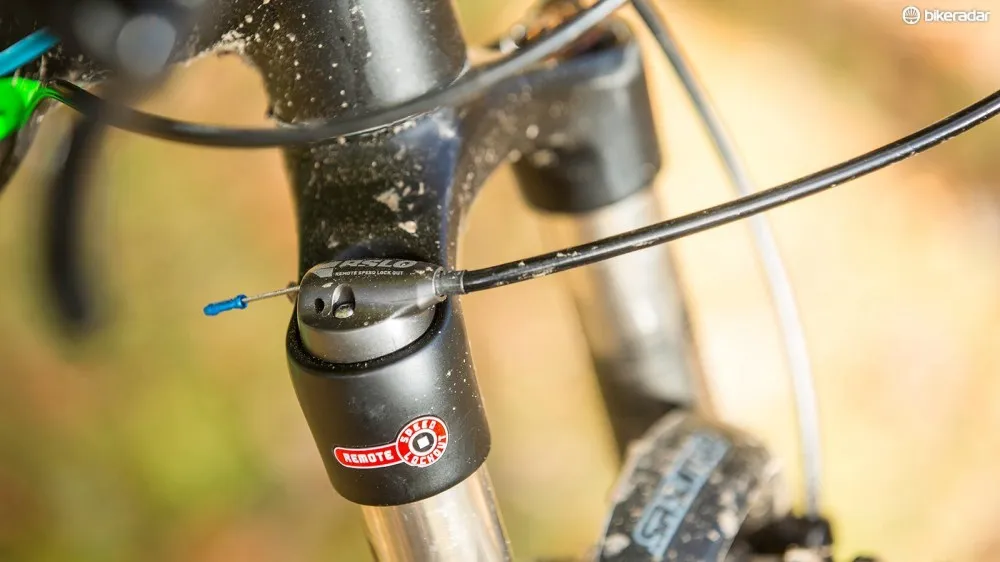
The non-adjustable coil-sprung fork feels firm and a little short on travel
The unsurprising downside to a direct-feeling, punchy bike that makes the most of its power is that it doesn’t dilute the rattle and jolts coming back from the trail. The XCR fork is firmer than other similar Suntour units we’ve sampled recently, never delivering more than 85mm of its claimed 100mm of travel.
The grips certainly don’t help comfort and even the skinny seatpost can’t save you from an asskicking if you stay seated over staccato trail sections. That means the Aspect can spill speed easily on rougher sections and cluttered climbs.
Swapping the numb-feeling Kenda tyres makes for an immediately smoother and more supple experience though, so it’s worth trying to haggle a swap before you buy. There’s also the option of the Aspect 920, which is essentially the same bike as the 720 but rolling on slower-accelerating and less agile but smoother, speed-sustaining 29in wheels.
